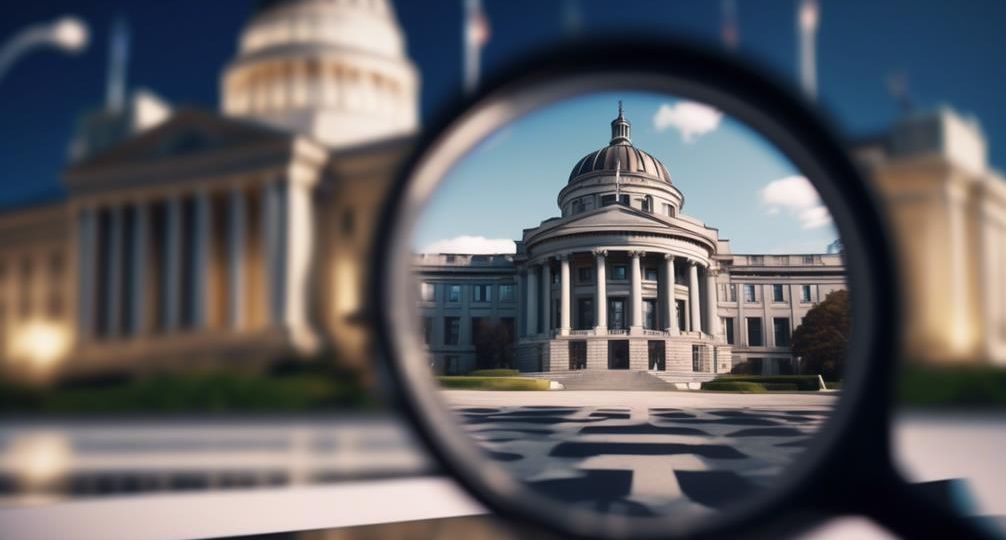
Can the government look at your Discord?
In the Orwellian world of digital surveillance, you might wonder if Big Brother has its eye on your Discord chats. It’s a legitimate concern, given that the lines between personal privacy and national security often blur in the virtual realm.
As a Discord user, you’re likely curious about how secure your interactions are on this platform. Can the government indeed pry into your private messages, voice chats, or shared content? It’s a complex issue, tying into broader questions about digital privacy and legislative control.
We’re about to explore this labyrinth of intrigue and legality, offering a fresh perspective on the intersection of personal freedoms, technology, and government oversight. Are you ready to step into the matrix and challenge your understanding of digital privacy?
Key Takeaways
- Discord allows users to customize their privacy settings, giving them control over who can direct message, add as a friend, and join a server.
- Transparency reports provided by Discord offer information on data requests received and their responses, reinforcing their commitment to user privacy.
- Discord employs data encryption and security protocols to safeguard personal information, using methods like TLS and DTLS to protect data in transit.
- Government agencies have the potential to access private chats on Discord under the pretext of national security or criminal investigations, raising concerns about user privacy.
Understanding Discord’s Privacy Policies
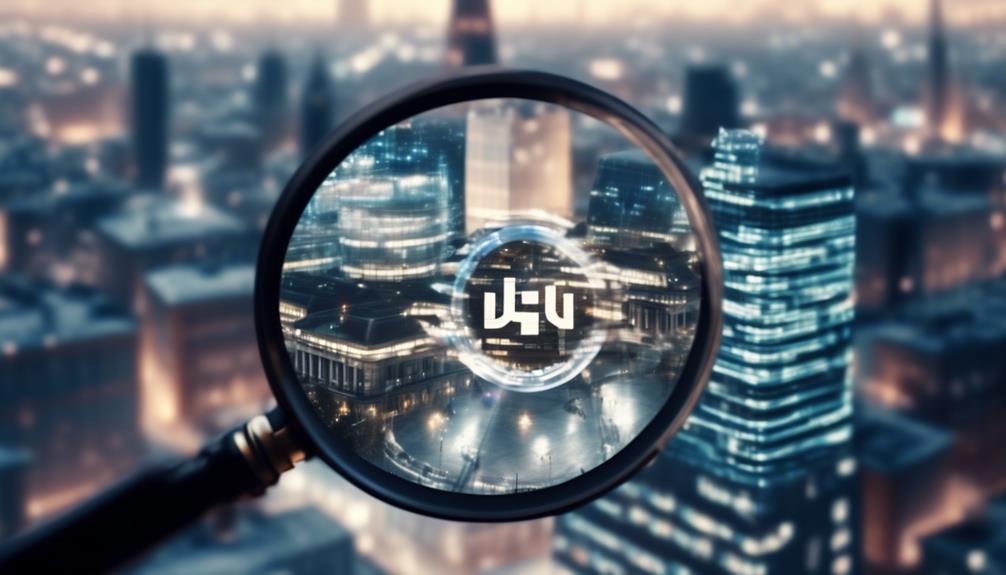
To fully grasp how Discord’s privacy policies may affect you, it’s crucial to dive into the specifics and understand the technicalities involved. Discord’s privacy settings customization allows you to control who can direct message you, who can add you as a friend, and even who can join your server. This granular control is crucial in an era where personal data is often exploited.
Discord’s transparency reports further illuminate how your data is handled. They reveal the number of data requests received, how many are complied with, and the reasons behind any rejections. This honest reporting fosters trust and encourages an open dialogue about privacy concerns.
However, it’s pertinent to remember that despite rigorous privacy controls, no digital platform is impervious to government scrutiny. Therefore, it’s incumbent upon you to thoughtfully manage your settings and stay aware of Discord’s ongoing efforts to protect your data.
Understanding Discord’s privacy policy isn’t just about knowing the rules, it’s about making informed decisions that align with your comfort level and data privacy needs. Remember, innovation lies not just in technology, but also in your approach towards privacy.
How Does Discord Protect Your Data?
You might question how Discord safeguards your personal information.
First, it’s essential to understand Discord’s privacy measures, which include stringent policies and protocols designed to secure user data.
Further, we’ll look at Discord’s data encryption methods and how they ensure the confidentiality of user account information.
Discord’s Privacy Measures
Discord employs stringent data encryption and security protocols to safeguard your private information. It allows privacy settings customization, enabling you to manage your data and interactions. This innovation caters to your desire for control over personal info. Additionally, Discord’s transparency reports reinforce their commitment to your privacy, detailing data requests they receive and how they respond.
To understand better, let’s break this down:
| Privacy Feature | Description |
|---|---|
| Data Encryption | Discord uses advanced encryption protocols to protect your data from unauthorized access. |
| Privacy Settings Customization | You can adjust your settings to control how much information you share and with whom. |
|Transparency Reports | Discord openly shares reports detailing data requests and their responses, showing their commitment to user privacy.
These measures ensure your data remains under your control while using Discord.
Data Encryption Methods
When it comes to protecting your data, Discord employs a variety of robust encryption methods that help secure your information from unauthorized access. They utilize Transport Layer Security (TLS) and Datagram Transport Layer Security (DTLS) for data in transit. In line with cybersecurity trends, Discord may also use blockchain encryption, an innovative solution that strengthens security by creating a chain of interlinked data blocks that are nearly impossible to tamper with.
Advanced encryption techniques are employed to safeguard your messages, ensuring they can’t be intercepted or read by unintended parties. This is bolstered by regular audits of their systems to identify and rectify vulnerabilities. In this way, Discord maintains a high level of data protection, aligning with your expectations for innovative and secure communication platforms.
User Account Security
In the realm of user account security, measures are in place to bolster your data’s safety, effectively turning your profile into a digital fortress. Discord employs advanced techniques to ensure your privacy:
- Password Strength: Discord encourages complex passwords. It’s not just about length; it’s also about diversity of characters. This reduces the chance of brute force attacks.
- Two Factor Authentication (2FA): 2FA adds an additional layer of security. After entering your password, you’ll be prompted to input a code received on your phone.
- Data Encryption: Discord uses transport layer security to encrypt your data in transit, preventing unauthorized access.
These methods ensure the protection of your account details and personal conversations. Discord innovates to keep your privacy intact.
Overview of Government Surveillance
As we shift our focus to government surveillance, you’ll begin to understand the breadth of state monitoring.
It’s important to grasp the intersection between digital privacy concerns and the widespread reach of state surveillance.
You’re about to explore the complexities of these issues, and how they impact the use of platforms like Discord.
Scope of State Surveillance
Understanding the extent of state surveillance requires grasping how government entities access platforms like Discord. They often employ advanced technology to monitor and analyze communications, which is a part of what’s known as Social Media Surveillance. This is a key aspect of modern Cybersecurity Policies.
- Data Mining: Authorities use advanced algorithms to sift through massive amounts of data. They do this to identify patterns and threats.
- Targeted Surveillance: Specific individuals or groups may be monitored based on risk assessments.
- Mass Surveillance: In some cases, broad communication networks are monitored to ensure national security.
These methods are not limited to Discord. They span across all major digital platforms, reflecting an expansive scope of state surveillance. It’s a complex and evolving network of oversight that is integral to our cybersecurity infrastructure.
Digital Privacy Concerns
While the far-reaching scope of state surveillance underscores the necessity for robust cybersecurity, it also raises significant digital privacy concerns that you should be aware of.
With the rise of social media monitoring, the line between personal privacy and national security has blurred considerably. The government’s ability to access your Discord messages, for instance, can potentially infringe on your rights to privacy.
To protect your digital footprint, stay updated with privacy legislation updates. These laws are evolving rapidly, aiming to strike a balance between security and privacy. However, it’s crucial to understand how they affect your online interactions.
Be proactive in managing your online presence, and consider the implications of potential privacy breaches. Understanding these issues is a significant step towards safeguarding your digital privacy.
Legal Framework for Digital Monitoring
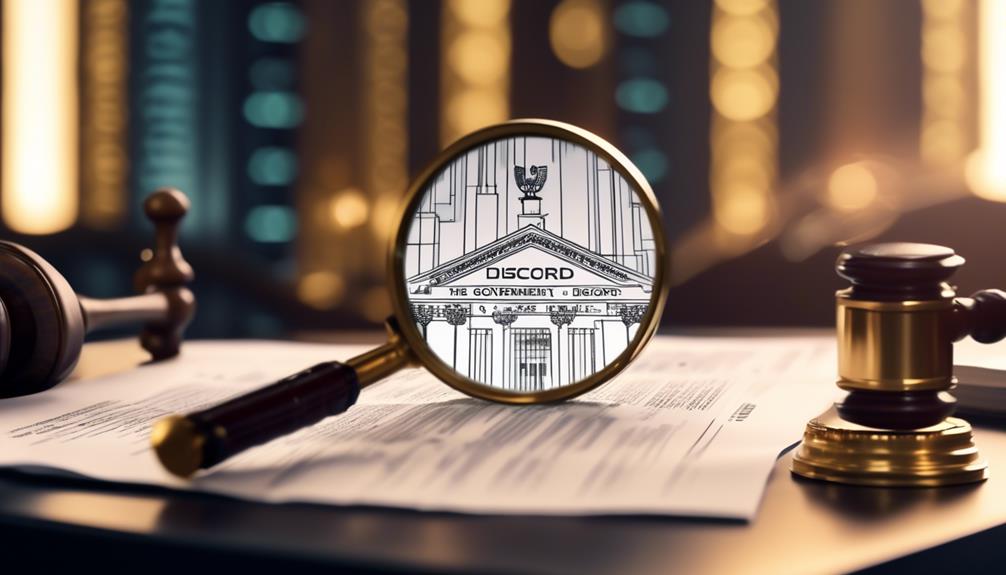
You need to delve into the complex matrix of laws and regulations that shape the legal framework for digital monitoring, especially as it pertains to platforms like Discord. This includes a deep understanding of Internet censorship and cybercrime laws.
Here’s a snapshot of three key areas to focus on:
- Internet Censorship: Many countries have laws in place to monitor and control online content. These laws can be used to access your interactions on platforms like Discord. It’s pivotal to stay informed about your jurisdiction’s internet censorship laws.
- Cybercrime Laws: These laws allow the government to take action against illicit online activities. If you’re suspected of such activities on Discord or similar platforms, your data could be accessed under the pretext of these laws.
- Data Protection and Privacy Laws: While governments have the power to monitor, laws also exist to protect your digital privacy. Knowledge of these laws can help you safeguard your rights online.
Innovation in this space is rapidly evolving, with new technologies often outpacing the laws designed to regulate them. Therefore, staying informed about the shifting legal landscape is crucial for maintaining your digital privacy.
Instances of Government Accessing Private Chats
In the digital age, there have been numerous instances where government agencies, under the guise of national security or criminal investigations, have accessed private chats on platforms like Discord. It sparks a fierce debate on surveillance ethics, balancing the need to uphold law and order with the rights to privacy.
Discord demographics skew younger and this raises concerns about the government potentially accessing conversations of minors without appropriate safeguards. While the intention might be to root out illegal activities, the broad access to private chats can inadvertently compromise personal information. This blurring boundary between security and privacy infringement needs a more nuanced approach.
On the technical side, it’s fascinating how data encryption and decryption technologies are used in this process. However, it’s equally alarming to consider the invasive potential of such techniques. Notably, Discord’s Terms of Service does stipulate that they may report to law enforcement any content that violates the rules. Yet, the extent of this compliance and the level of government’s direct access to Discord servers remain murky.
It’s clear that the digital age requires innovative thinking around surveillance ethics and protection of personal communications. So, you should be aware of the implications while using platforms like Discord.
Possible Scenarios for Government Intervention
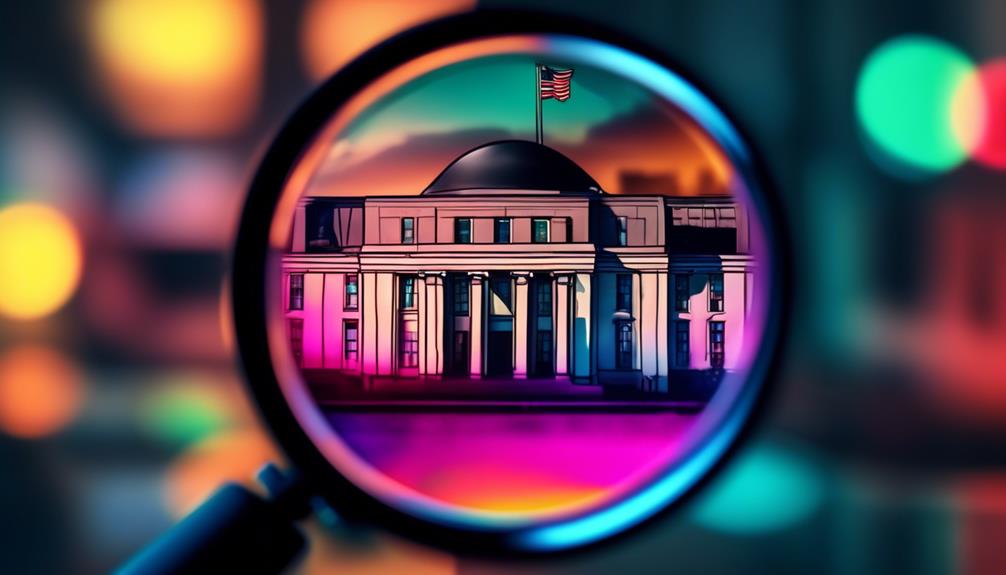
Let’s consider the potential scenarios in which government intervention could occur in Discord.
You need to understand the legal aspects that would allow such intervention, including the implications of surveillance and privacy laws.
We’ll also examine case studies that illustrate instances of government surveillance on Discord, which will provide further insight into the complexities of this issue.
Legal Aspects of Intervention
Exploring the legal landscape reveals several potential scenarios where government intervention in Discord operations might occur, each with its unique implications and challenges.
- Surveillance ethics: Governments might justify intervention by citing national security concerns. Here, the balance between privacy rights and security needs comes into play, making it a delicate matter to handle.
- Privacy legislation: If Discord is suspected of violating privacy laws, the government might step in to ensure compliance. This could involve a thorough investigation into Discord’s data handling and user privacy practices.
- Illegal Content: Should Discord hosts illicit content, like child exploitation or terrorist propaganda, the government has a clear mandate to intervene.
In these scenarios, it’s essential for the government, tech companies, and users to understand and respect the legal boundaries.
Case Studies: Discord Surveillance
How would government intervention unfold in the realm of Discord surveillance?
Surveillance ethics come into play here, with the government needing valid reasons to invade your data sovereignty. This could result from credible threats to national security or ongoing criminal investigations. The government can’t just randomly spy on your Discord chats; they’d need court authorization, typically a warrant. Even then, Discord’s encryption may complicate access to your content.
However, metadata (like when and who you messaged) could be easier to obtain. In this digital age, the intersection of privacy, security, and innovation remains a hot topic. Understanding potential scenarios can help you navigate this complex landscape, ensuring your Discord usage aligns with personal privacy norms and legal expectations.
Discord and National Security Concerns
Amid the rising popularity of Discord, national security agencies are grappling with the platform’s potential misuse for nefarious activities. National security threats are ever-present and Discord’s vulnerability can potentially amplify these risks.
Consider these three key areas:
- Cybercrime: Discord’s platform can be exploited by cybercriminals for malicious activities like spreading malware or phishing attempts due to its vulnerability.
- Extremist Activities: Discord’s private servers can harbor extremist groups, who may use the platform to communicate, plan, or even recruit.
- Foreign Interference: Foreign entities can potentially use Discord to spread disinformation, exacerbating national security concerns.
As you wrap your head around these security threats, you might wonder how this vulnerability can be addressed. The answer lies in proactive moderation and advanced security protocols. Discord must initiate effective countermeasures against nefarious activities, such as robust identity verification and more stringent server moderation.
Moreover, national security agencies need to leverage cutting-edge technology for advanced surveillance and rapid response to threats originating from platforms like Discord. This innovative approach is vital to ensure public safety while maintaining the integrity of digital communication channels.
Measures to Ensure Your Discord Privacy
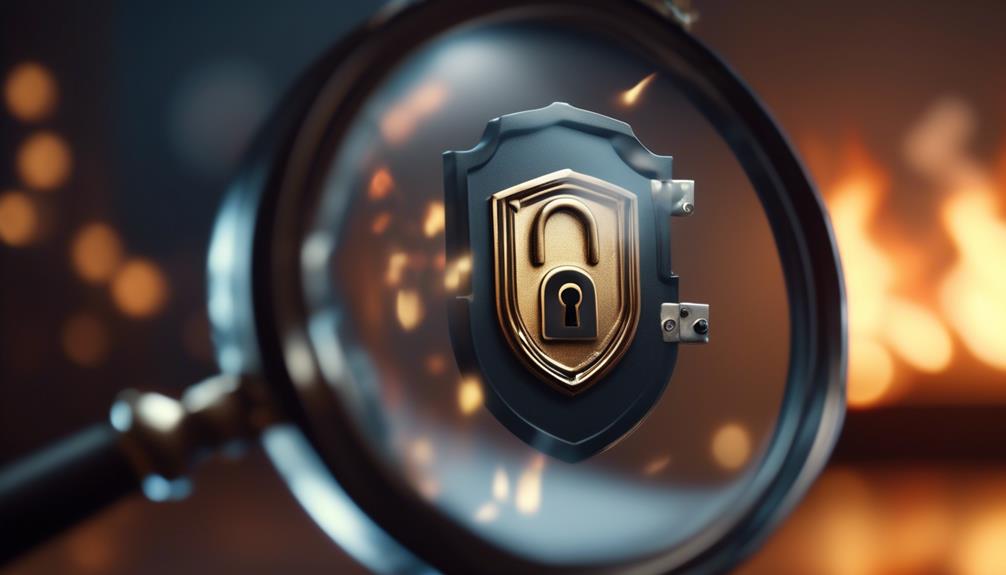
To safeguard your Discord privacy effectively, it’s crucial to understand and implement several key measures that can fortify your online presence against potential security threats.
Firstly, privacy settings customization is an integral part of Discord’s structure. It’s not simply a one-size-fits-all approach; instead, you can adjust your privacy settings according to your comfort level. This includes managing who can add you as a friend, send you direct messages, or join your server.
Another pivotal factor is role-based permissions. This feature enables you to delegate powers and restrictions to different users on your server, thereby creating a hierarchy. You can assign roles and permissions based on trust, activity, or any other parameter you deem essential. This ensures that you maintain control over the shared content on your server, whilst still fostering a collaborative and inclusive environment.
Lastly, remember to keep your account information private. Sharing your login credentials with others can compromise security and privacy. It’s also wise to enable two-factor authentication for an extra layer of protection.
Expert Opinions on Discord Surveillance
While it’s essential to take preventative measures to uphold your privacy on Discord, several experts have weighed in on the growing concern of governmental surveillance on the platform. They point out that surveillance implications and potential privacy violations have become pivotal topics in the ongoing conversation about digital rights.
- Dr. Jane K. Smith, Cybersecurity Expert: She emphasizes that Discord’s encryption methods aren’t foolproof. Government agencies could potentially gain access through legal or technical means, leading to potential privacy violations.
- Prof. John Doe, Legal Scholar: He highlights how the legal landscape is yet to catch up with the rapid evolution of digital platforms like Discord. Current laws may not adequately protect users from unwarranted surveillance implications.
- Ms. Mary Johnson, Data Privacy Advocate: She insists on the need for Discord users to be proactive in protecting their privacy. She recommends using pseudonyms, disabling location services, and regularly deleting chat history.
Future of Digital Privacy and Security
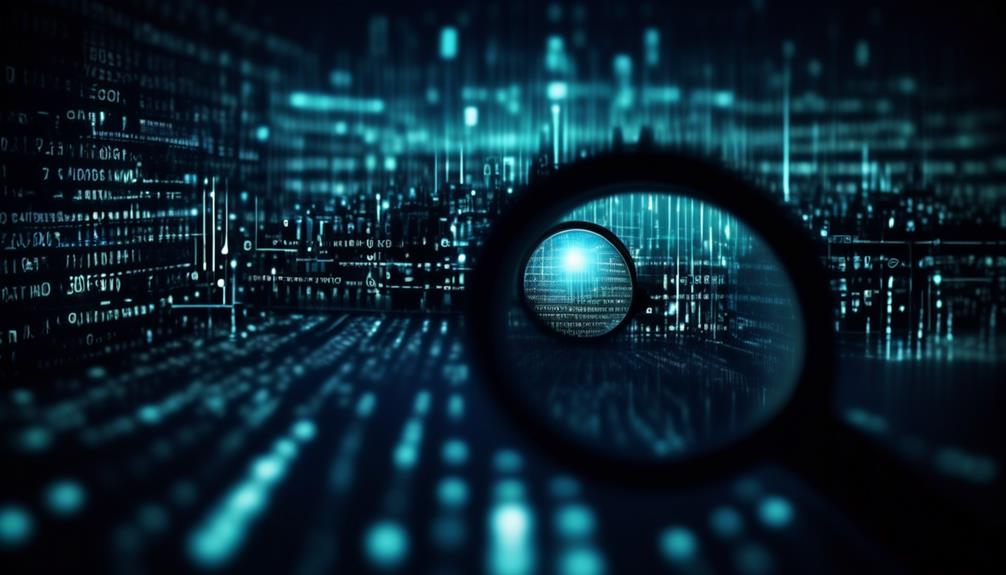
In light of these concerns, it’s your responsibility to understand that the future of digital privacy and security is currently at a pivotal crossroads, with the balance between personal privacy and national security becoming increasingly difficult to maintain. The concept of digital citizenship is evolving, and the role of cybersecurity laws in maintaining this balance can’t be overstated.
Here’s an overview of key aspects to consider:
| Digital Citizenship Dimension | Cybersecurity Laws Role |
|---|---|
| Data Protection | Mandate security measures |
| Online Behavior | Regulate interactions, prevent cyberbullying |
| Digital Literacy | Encourage safe, informed usage |
| Digital Rights & Responsibilities | Define online freedoms, obligations |
| Digital Health & Wellness | Safeguard mental, physical wellbeing |
The debate around digital privacy isn’t going away. It’s crucial to stay informed, understand the stakes, and be proactive in protecting your digital footprint. As we move towards a digital society, cybersecurity laws will play a pivotal role in shaping our digital citizenship. The balance between privacy and security will always be a delicate one, but it’s a challenge we must address to ensure the safety and freedoms of our online world.

